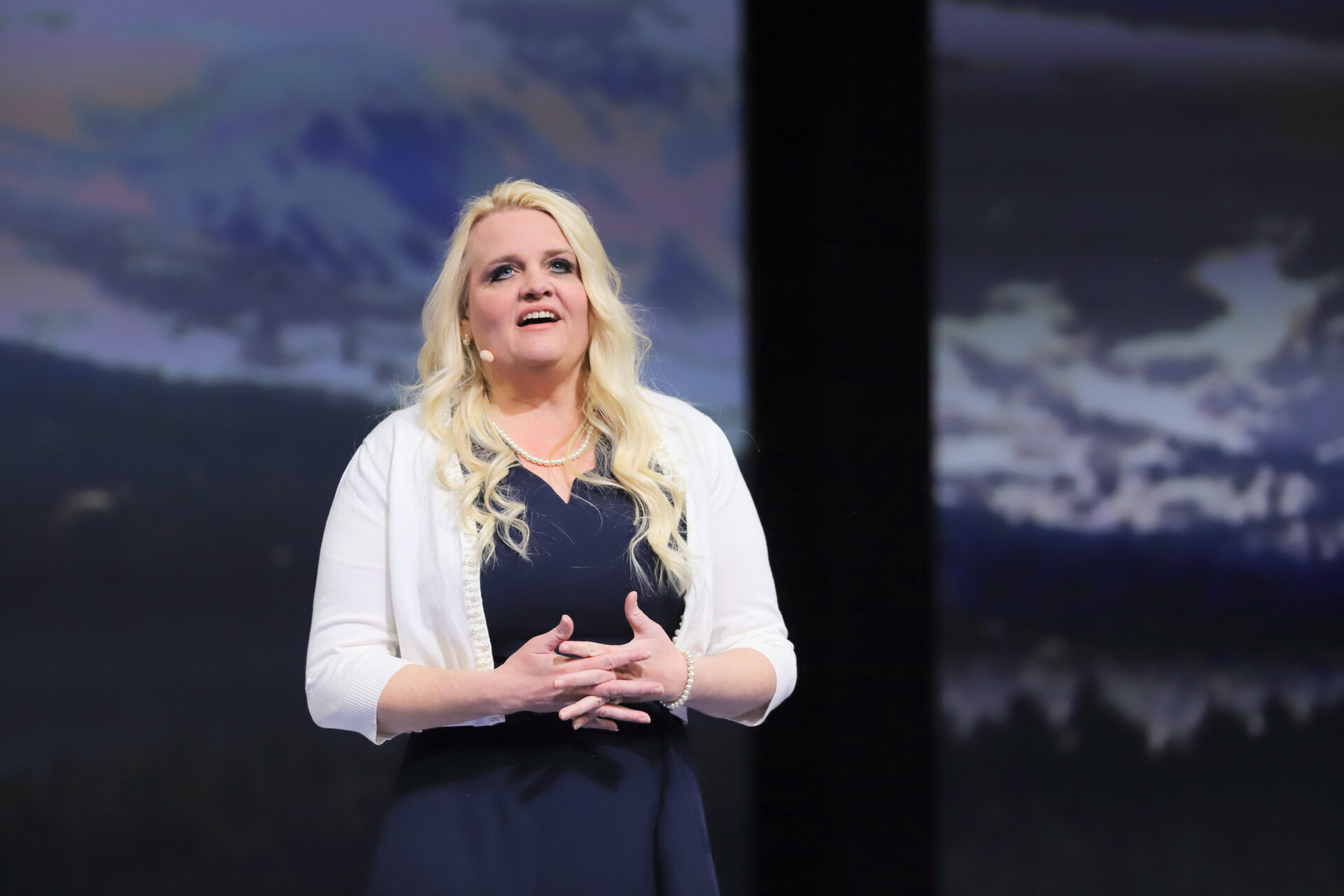
Loreen Allphin Flinders, associate dean of the Department of Plant and Wildlife Sciences, spoke to students about six lessons she has learned from the natural world in her devotional address on April 4.
Flinders said in almost 30 years of being a professor, she studied many different plants in many places around the world. She said she has a deep love for all of Heavenly Father’s creations and has since she was young.
Flinders quoted several scriptures, conference talks and hymns that all referenced nature and the creation of the earth. “One of the purposes of the Divine creation is to testify and witness of Him, to let His glory show,” Flinders said.
Nine to 10 years ago, she said she went through a traumatic life event and around the same time went through a divorce. She said her body was under great stress, developed recurring Shingles and suffered from a compromised immune system.
During these difficulties, Flinders said she found peace in the natural world and in the temple as she spent time in those two places.
She said she learned six important lessons from the natural world during this difficult time.
First, she said she learned from nature to “grow toward the light.” Flinders said because light is essential for plants, they grow toward the light.
“Just as light is essential for life in the natural world, the light of Christ is necessary for our spiritual survival. Examples from the plant world have shown me how to actively grow toward the Light of the world,” Flinders said.
Second, Flinders said she learned to “remain deeply rooted in the Living Waters.”
Water is also essential for plants, she explained. Some plants will root deeply to receive water from deep reservoirs and anchor themselves against storms.
Flinders said she asked herself, “Was I deeply rooted and anchored in Living Waters?” There are many strategies to remain deeply rooted in Living Waters, she said, including keeping the commandments, making and keeping sacred covenants and attending the temple.
The third lesson Flinders said she learned during this time was to find effective ways to tolerate stress.
Flinders used the example of a bristlecone pine she studied with her husband and one of his colleagues. She said the pines thrive on adversity and can survive harsh conditions and extreme temperatures.
Relating to herself, Flinders said, “During this stressful time, I learned from bristlecones that I had to simplify my life. I had to concentrate on the basics. I focused on my relationship with God and my children first. I focused on what was most important … and I let the less important things slide.”
Fourth, Flinders said she learned “we don’t need to know all the answers.”
Flinders said ecologists know that ecosystems are incredibly complex and do not completely understand them. She said this helped her in her complex circumstance.
“Realizing that I did not need to know all helped me find peace. I could believe that all things would work together for my good if I walked uprightly and kept my covenants,” Flinders said.
Flinders said the fifth lesson she learned was to find refuge and stability in a diverse community.
In ecology there is a theory known as the “diversity-stability hypothesis,” Flinders explained. The theory states that more diversity of species within a community maintains a more stable ecosystem under environmental stress.
She said during her difficult time, a diversity of help came to her rescue from a variety of people and places. She said each person brought a diversity of talents, abilities and approaches to help her.
The final lesson Flinders shared was to always remember and thank Heavenly Father.
Flinders read from 1 Nephi 18:16 where Nephi says, “I did look unto my God, and I did praise him all the day long.” She said she too tried to praise God all day long by looking for simple things to be grateful for each day. She said this time of her life was a test of her gratitude.
Flinders said, “I’m glad that I was able to look up and that I found answers and lessons in Heavenly Father’s creations. This has made my love of His creations grow even stronger. I feel an urgent desire to help protect and conserve this natural world.”




